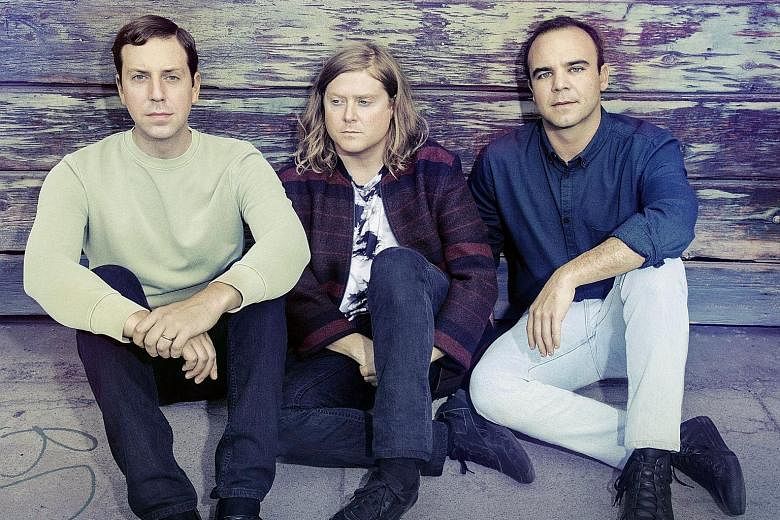The Far Field is the title of an acclaimed verse collection by the American poet Theodore Roethke published in 1964, a year after he died of a heart attack while swimming in a friend's pool.
It is also the title of the fifth album by the Baltimore synth-pop trio Future Islands, who earlier named their 2010 release In Evening Air, after one of the poems in Roethke's final volume.
Clearly, frontman Samuel T. Herring finds a kindred spirit in the poet, whose terse yet gnomic lines belie a life of trying to pursue happiness despite a series of disappointments.
That counterpoint between outward propulsion and inner conflict is also witnessed in the best work of Future Islands, who came to fame after Herring's strange, jerky moves riveted the world while he sang Seasons (Waiting On You) on The Late Show With David Letterman in 2014.
-
SYNTH-POP
-
 THE FAR FIELD
THE FAR FIELD Future Islands
4AD
4/5 stars
Outwardly, their latest songs, catchy as hell, don't change very much, but scrape the surface, and change colours every success and failure.
Take, for instance, Through The Roses, penned during a long trip through the Blue Ridge Mountains and billed by Herring as "a suicide song".
"I'd reached all my goals, but all I found was the same loneliness," he confessed in a recent interview.
That realisation lends the song's chorus its oomph.
As bassist-guitarist William Cashion and keyboardist Gerrit Welmers weave a cocoon of feathery synth whorls, Herring comes clean: "It's not easy, just being human/ And the lights and the smoke and the screens/Don't make it better/ I'm no stronger than you and I'm scared."
The pronouncement is delivered so matter of factly, you almost miss it, as you punch the air, shimmy and let loose to the 1980s-styled Technicolor pop.
The manly vulnerability extends to his belief in the redemptive power of love. "I've gotta catch you/Freezing rain can't keep me away," he sings in North Star, about driving through a blizzard to reach a lover. The weather may chill, but his heart burns.
That's the perverse achievement of Future Islands - they are not afraid to show their fragility and hence empower fellow men, and women, to let their guard down.
In Ancient Water, Herring exhorts the listener to put down all the technological gadgets and survey his own surroundings.
"Too many wasted days and nights/ Obsessed with the flickering bits of my life," he declaims over starlit keys and punchy drums.
As the fleet-footed rhythms get to you, he delivers an aphorism: "First step to being better is doing the smallest things."
The can-do spirit bolsters the band's insistence on solidarity.
It is a coup then that they manage to get Debbie Harry, the doyenne of 1980s new wave, to duet on the disco-relic heart-thumper Shadows. It is an inter-generation dialogue - Herring and Harry trade vocal lines, both survivors in their own right.
"These old shadows," he sings, to which she responds: "They're just shadows", and vice versa. The sky brightens, shadows banished.

